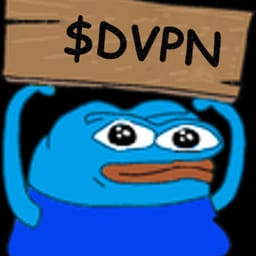Claiming the EigenLayer Airdrop with dVPN
The United States, China, Russia, and Canada have all been excluded from this airdrop. The population of those four countries alone exceeds 3.5 billion; almost half of the total population of the planet... [and] probably only the tip of the iceberg when it comes to restricted localities.
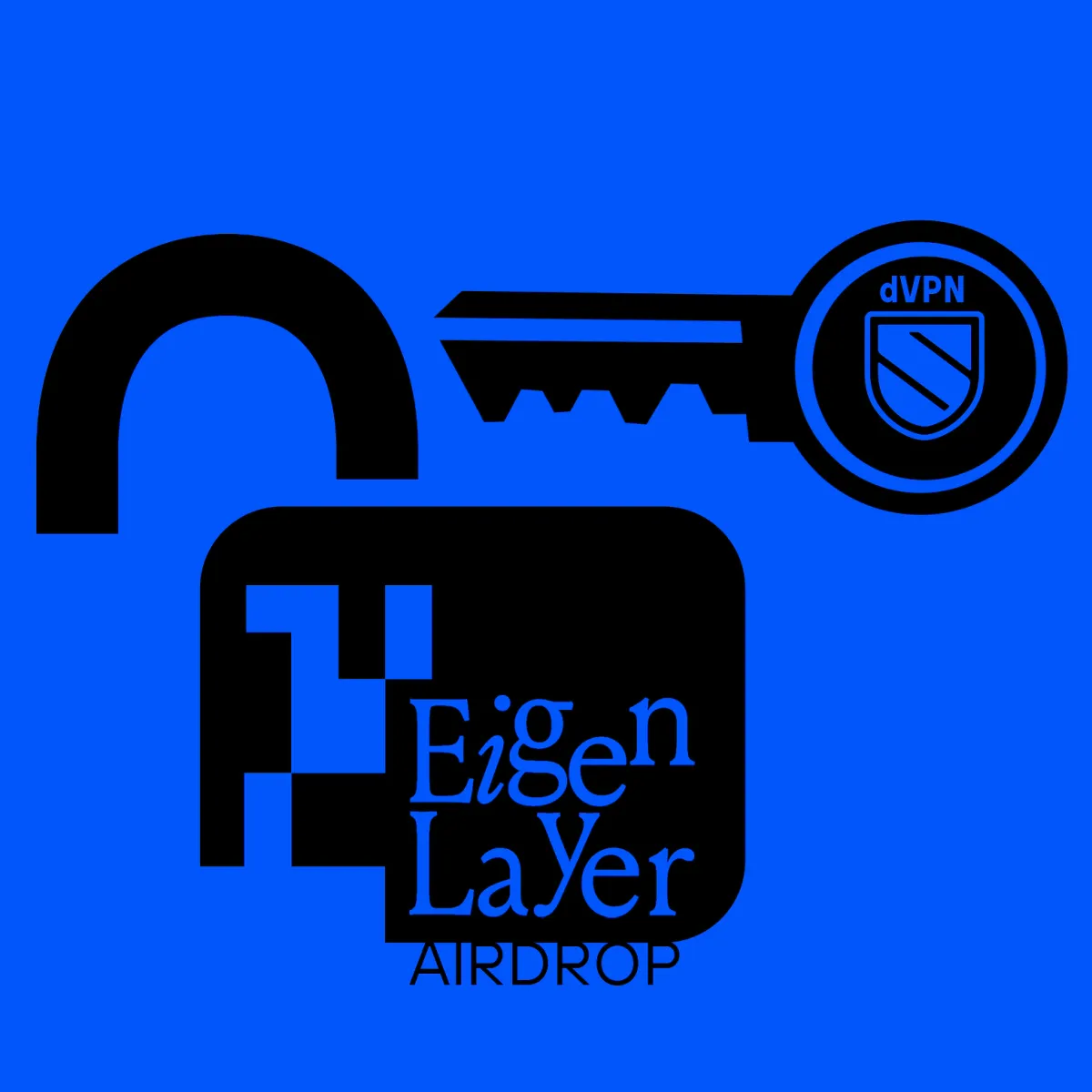
The first of two eagerly-anticipated $EIGEN airdrops has now begun!
According to the Eigen Foundation, which develops EigenLayer, 15% of the token’s initial supply has been allocated for airdrops that will reward staking and early contribution across their ecosystem. The first will begin soon, and the next phase is expected to begin in May.
What is EigenLayer?
While EigenLayer’s objectives for improving Ethereum are wide-ranging, the function creating the most waves in the Web3 world is its restaking service. EigenLayer allows staked Ethereum ($ETH) to be rehypothecated, which means that once it is staked on EigenLayer it can also be staked with other tokens—a dual yield for users.
EigenLayer’s mainnet launched earlier this month, and the ecosystem has already accumulated over $12 billion in user deposits.
Airdrop Details
The snapshot for phase one of the airdrop was taken on March 15th at 1:11 UTC.
To review the eligibility requirements and learn more about EigenLayer airdrop and EIGEN token, see the following FAQs and articles on their documentation website. Please bear in mind that bypassing the geo-restrictions will not necessarily make you eligible to claim the airdrop—you can verify whether you are below.

Controversy
Like so many airdrops, this one has turned out to be heavily geo-restricted and therefore out-of-bounds for billions of unlucky people. In this instance, the prominence of EigenLayer as a potential standard-bearer for crypto in the coming years has exacerbated the criticism even further.
X users from around the world have vented their frustration, and shared many images of the dreaded "this site is not available in your region” error page. Industry insiders have even made their voices heard. “Accepting stake from those countries and not rewarding them isn't right,” said crypto researcher Aylo of Alpha Please on X, “They took a very real risk for nothing.”
I've just seen that. Accepting stake from those countries and not rewarding them isn't right. They took a very real risk for nothing.
— Aylo (@alpha_pls) April 29, 2024
Business Insider has confirmed that the United States, China, Russia, and Canada have all been excluded from this airdrop. The population of those four countries alone exceeds 3.5 billion, which is almost half of the total population of the planet, and well over half of total internet users.
Those four are also probably only the tip of the iceberg when it comes to restricted localities.
dVPN is the Solution
Don't worry about it, that's why Sentinel is here!
In this article, we will explain how to sidestep this annoyance entirely with some of the decentralized VPN (dVPN) apps built on the Sentinel blockchain.
Follow the link below to see a full directory of every application, including available platforms and download links.

For the purposes of demonstration, we will be using Airdrop dVPN, which is presently in beta for Android; and Meile dVPN, which is presently available on Windows, Mac, and Linux.
Because it is a beta pre-launch release, Airdrop dVPN is not yet listed on the Sentinel Docs page linked above. A download link will instead be available below.
Mobile
Any dVPN client that is part of the ecosystem will have access to the same network of Sentinel Nodes, and the process for accessing the airdrop will be almost identical regardless of your application choice.
For our mobile demonstration, we will use Airdrop dVPN; which is in beta and available only for Android at this time. Despite those factors, we decided to use it for this article because it’s specifically equipped for tasks like this and aesthetically simple. Newcomers to dVPN will also appreciate it being completely free to install and use.
Download the Airdrop dVPN beta APK from the Sentinel Application Testing Forum on Telegram. Its official launch is drawing very close, according to the Sentinel team.
Sentinel’s offerings for iOS currently include versions of: Breadcrumbs
Solar dVPN
Independent VPN
V2:App
Click on any of the three preceding links to download them on the App Store.
The major difference between Airdrop dVPN and the other mobile clients is that all nodes displayed in are residential nodes, as opposed to data center nodes (most Sentinel clients display both). Residential IP addresses tend to be superior for bypassing stringent geo-restrictions used by crypto projects for their airdrops.
First-time setup upon starting the app may take a few seconds. This next part is crucial:
Once the app is ready, select one of the three nodes in Uruguay.
Even with Airdrop dVPN’s residential offerings, bypassing airdrop geo-restrictions sometimes requires the use of specific nodes in specific locales with specific configurations. We attempted to access the same page using residential nodes in both the Czech Republic and Singapore and still got blocked.
Once more, ONLY those three Uruguayan nodes have been confirmed to work for claiming this airdrop. It is quite possible that there are other residential nodes which work; but those are the only ones we know of so far. Special thanks to freQnik for making us aware of them.
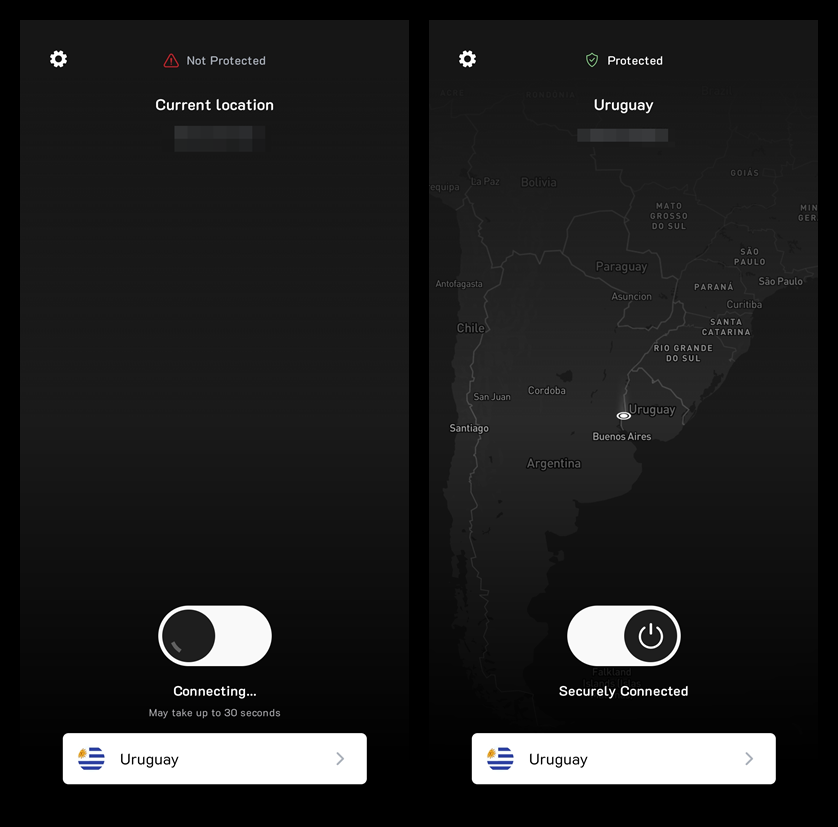
Because of this residential node in Montevideo, we broke through the geo-block in under thirty seconds with the simple installation of an app and tap of a button. No more "not available in your region!”
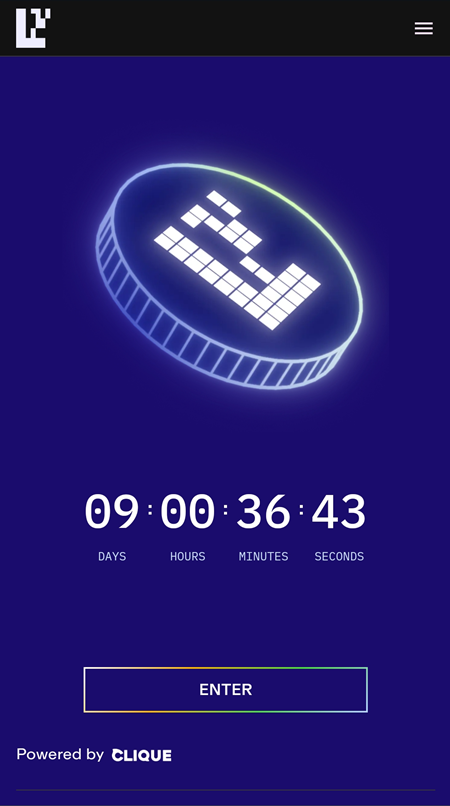
Desktop
Accessing the airdrop on desktop browser will require a paid solution like Meile dVPN, a decentralized VPN client developed by MathNodes—don’t fret though, it will still be extremely cheap!
Meile is available on all major desktop operating systems (Windows, Mac, Linux). Follow the button below to download it at the MathNodes website.
Other desktop options for Sentinel dVPN include Breadcrumbs (Mac), Solar dVPN (Mac), and Independent VPN for Windows, which is currently in beta. The VPN embedded into Decentr’s Web3 browser (Windows, Mac, Linux) also uses a selection of Sentinel Nodes curated by MathNodes.
To use Meile dVPN, you will need either a balance of Sentinel Coins ($DVPN), or a fiat payment method like a credit or debit card. Payment is also accepted in OSMO, SCRT, ATOM, and DEC. Meile users have the option of connecting their existing crypto wallets to the application. All fiat transactions are conducted through a secure third-party service which does not share any of your information with MathNodes.
Once the client is booted up (give it a minute) and payment is set up, you'll be able to select a country and city from the map to connect to. Because all decentralized VPN applications built with Sentinel use the exact same network of nodes, the same criteria for selection that we used for Airdrop dVPN also applies here.
We will access the same trio of Montevideo nodes as we did in the first demonstration.
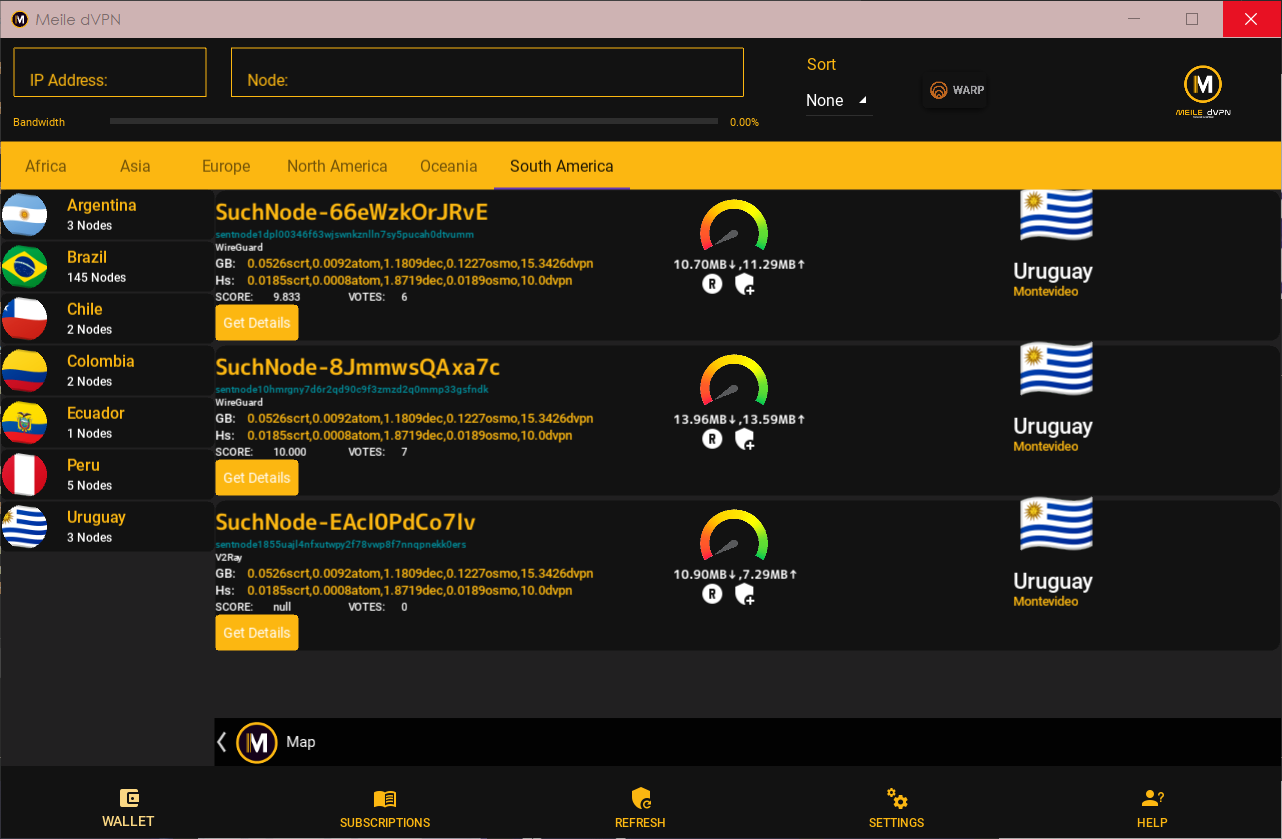
Users have the option of paying for a set gigabyte amount of data (pay-as-you-go) or purchasing a periodic subscription.
If your only immediate plans for using this application are for claiming the EIGEN airdrop, we recommend purchasing one day, or a random small quantity of gigabytes—but frankly, bandwidth in the Sentinel Ecosystem is so cheap that it hardly even matters.

Our seven gigabyte subscription cost just over 107 DVPN, which is about $0.16 USD or €0.15 EUR. After subscribing, you can manage node subscriptions and connect/disconnect from them from the "Subscriptions" tab on the bottom menu.
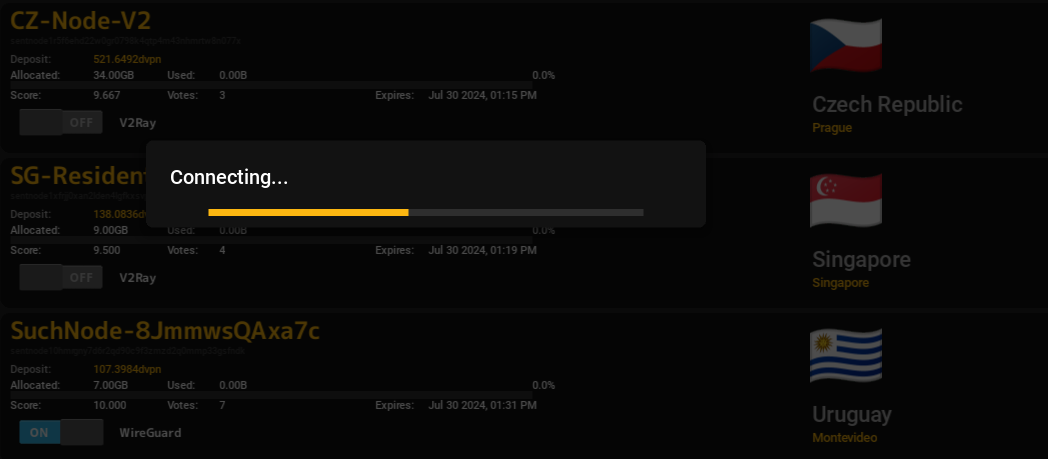
Once we were connected, the geo-restrictions were immediately smashed, just as this exact same node did for us earlier inside of Airdrop dVPN.

Conclusion
Some airdrops that we’ve created guides for in the past, such as Wormhole, were as simple as getting connected to any dVPN node located in a whitelisted region and clicking "claim;" but EigenLayer has the toughest set that we've encountered so far this year.
The amount of effort it takes to foil geo-restrictions will always vary on a case-by-case basis. In the realm of online freedom and privacy, the cat-and-mouse war between the restrictors and the restricted will never end; but Sentinel strives to stay ahead of that curve and give you the latest Web3 tools for solving your Web3 problems.
Download a Sentinel-powered dVPN application, get involved in the Sentinel community, and never miss out on claiming what's yours because of something silly like geography ever again!
Join Our Journey
At dVPN.news every member of the Sentinel community is a contributor. Whether you're writing articles, sharing tutorials, or participating in discussions, your involvement is what drives our collective growth, and best of all it's rewarded! Together, so if you to contribute to the growth of the Sentinel Network, you are in the right place!

Connect with Us
Stay in touch and be part of our growing community:
- Follow Sentinel on X (Twitter)
- Follow The Growth DAO on X (Twitter)
- Join The Growth DAO community Telegram Group




